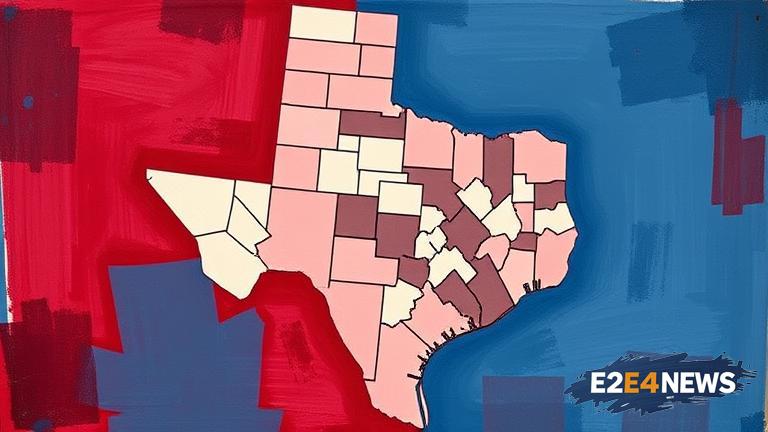A group of Democratic lawmakers from Texas have fled the state in an effort to prevent the passage of a highly contentious election remapping bill. The bill, which has been criticized for its racist and discriminatory nature, aims to redraw the state’s electoral districts in a way that would heavily favor the Republican Party. By leaving the state, the Democrats are denying the Republican-controlled legislature the necessary quorum to pass the bill. The move is seen as a last-ditch effort to prevent the bill from becoming law, and it has sparked a heated debate about the role of gerrymandering in American politics. Gerrymandering, the practice of manipulating electoral district boundaries for political gain, has long been a contentious issue in the United States. Critics argue that it leads to unfair and unrepresentative electoral outcomes, and that it undermines the democratic process. The Texas bill is particularly contentious because it would disproportionately affect minority communities, who tend to vote Democratic. The bill’s proponents argue that it is necessary to ensure the integrity of the electoral process, but opponents claim that it is a thinly veiled attempt to suppress the votes of minority groups. The Democrats’ decision to flee the state has been met with both praise and criticism, with some hailing it as a brave stand against racism and others condemning it as a cynical political stunt. The move has also raised questions about the limits of political protest and the role of lawmakers in representing their constituents. As the standoff continues, it remains to be seen whether the Democrats’ tactic will be successful in preventing the bill’s passage. The issue has sparked a national conversation about the importance of fair and representative electoral districts, and it has highlighted the deepening partisan divisions in American politics. The use of gerrymandering as a political tool has been widely criticized, and many are calling for reforms to prevent its use in the future. The Texas bill is just one example of a broader trend of voter suppression and electoral manipulation that has been seen in several states across the country. The Democrats’ decision to flee the state has drawn attention to the issue and has sparked a renewed debate about the need for electoral reform. The move has also highlighted the importance of protecting the voting rights of minority communities, who are often disproportionately affected by gerrymandering and voter suppression efforts. As the debate continues, it is clear that the issue of gerrymandering will remain a contentious one in American politics for the foreseeable future. The Texas bill has sparked a national conversation about the importance of fair and representative electoral districts, and it has highlighted the need for reforms to prevent the use of gerrymandering as a political tool. The Democrats’ decision to flee the state has been seen as a bold move, and it has drawn attention to the issue of voter suppression and electoral manipulation. The move has also sparked a renewed debate about the role of lawmakers in representing their constituents, and it has raised questions about the limits of political protest. The issue of gerrymandering is complex and multifaceted, and it will likely require a comprehensive solution to address the underlying issues. The Texas bill is just one example of a broader trend of voter suppression and electoral manipulation, and it highlights the need for reforms to protect the voting rights of all citizens. The Democrats’ decision to flee the state has been met with both praise and criticism, but it has sparked a necessary conversation about the importance of fair and representative electoral districts. The move has also highlighted the importance of protecting the voting rights of minority communities, who are often disproportionately affected by gerrymandering and voter suppression efforts. The issue of gerrymandering will remain a contentious one in American politics for the foreseeable future, and it will require a sustained effort to address the underlying issues and prevent the use of gerrymandering as a political tool.





